Search Our Whole site:
Just Search: Malawi
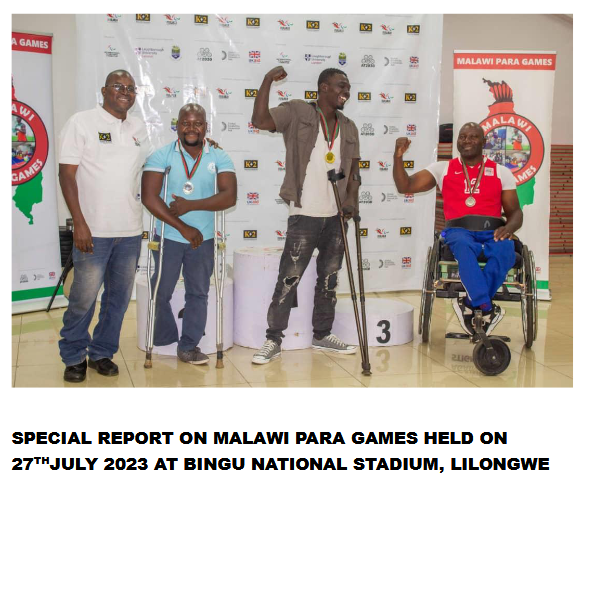
Special Report on Malawi National Paralympic on 27th July at the Bingu National Stadium (BNS) in Lilongwe
The Malawi Paralympic Committee (MPC) hosted the first ever Malawi National Paralympic on 27th July, under the theme “Developing Elite Para Sport at national Level”. The First Malawi Para Games took place at the magnificent Bingu National Stadium (BNS) in Lilongwe, the Capital City.
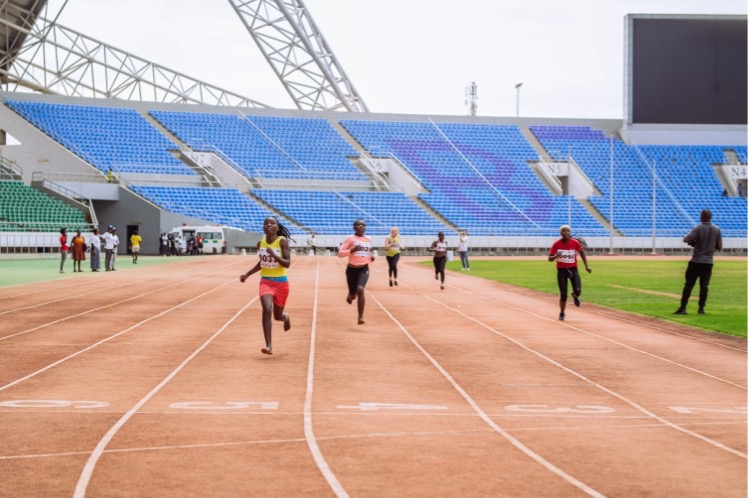
Uniting Nations: Breaking Stigma Through Para Sports and Assistive Technology in Malawi
The Malawi Paralympic Committee (MPC) has successfully implemented the I'mPOSSIBLE education package to support inclusive education, including physical education, in almost 200 schools. Additionally, it helps identify potential for the upcoming generation of para-athletes from Malawi. During our visit, we participated in a Knowledge Exchange Forum between teachers involved in the implementation of the I’mPOSSIBLE (localised) toolkit held at the Bingu National Stadium. We also visited the new training facility of the MPC, experienced inclusive sports activities at Lilongwe LEA Primary School, and participated in a workshop with I’mPOSSIBLE teachers to capture impactful stories of success emanating from the implementation of the programme.

Andrew Mtegha’s Story: Infusing disability rights advocacy into Paralympic sport broadcasting in Malawi
Andrew Mtegha is a disability rights advocate and presenter of several programmes about disability inclusion on the Malawi Broadcasting Corporation (MBC), such as Disability is Not Inability. The aim of these programmes is to give a platform to people with disabilities to voice out their views about their own issues in Malawi. Although Andrew has never done any sports reporting he was invited to be part of the MBC commentary team for the Tokyo 2020 Paralympic Games, provided in Chichewa.
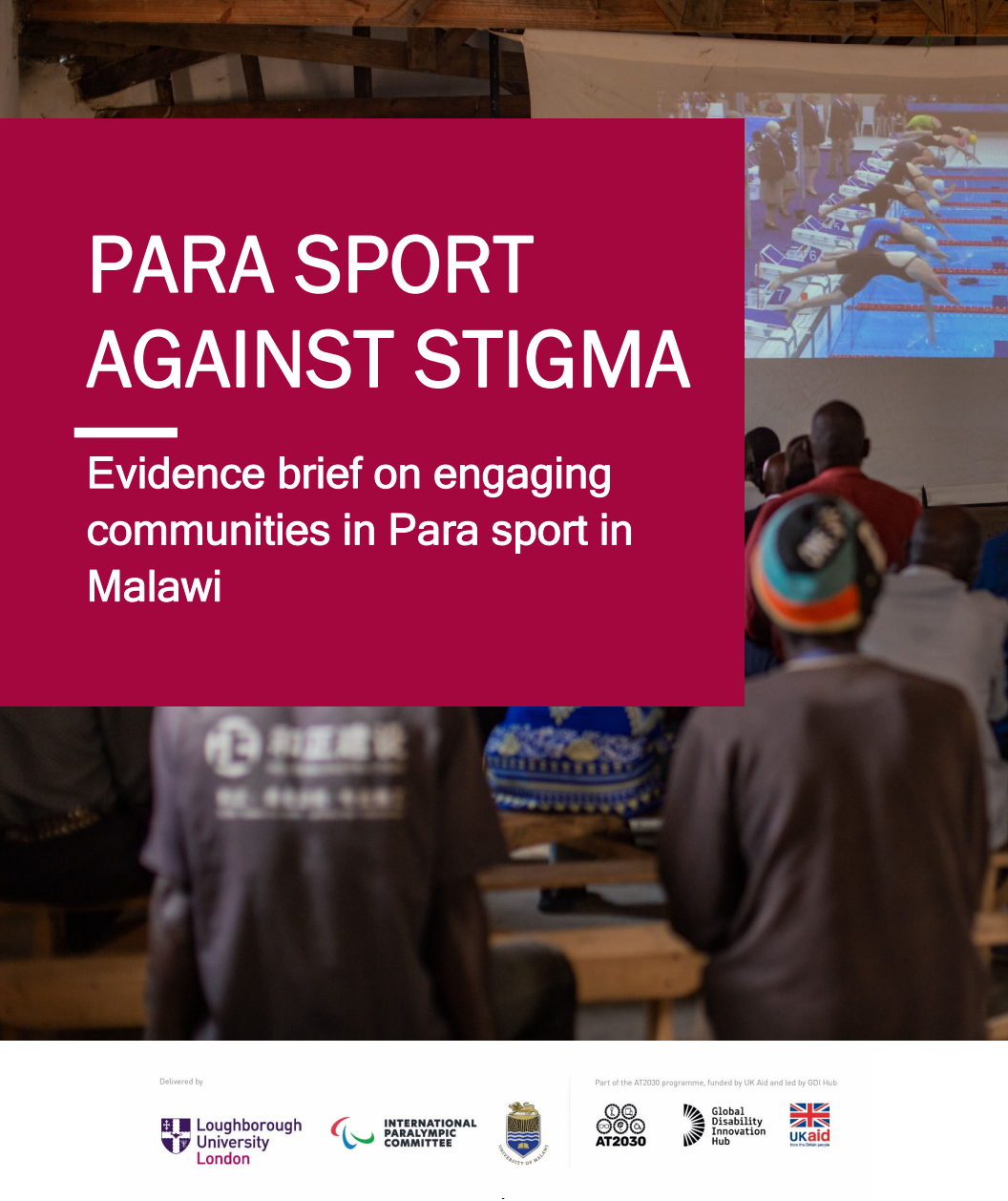
Evidence brief on engaging communities in Para sport in Malawi
Stigma and discrimination are among the most pressing challenges facing persons with disabilities and their families in Malawi. It leads to social exclusion from many areas such as education, employment, and sport. Addressing stigma and other barriers to inclusion must be part of an inter-Ministerial approach to implementing disability policy in Malawi. This report shares findings from a major research study on the potential of Para sport for addressing stigma, and provides a set of recommendations.
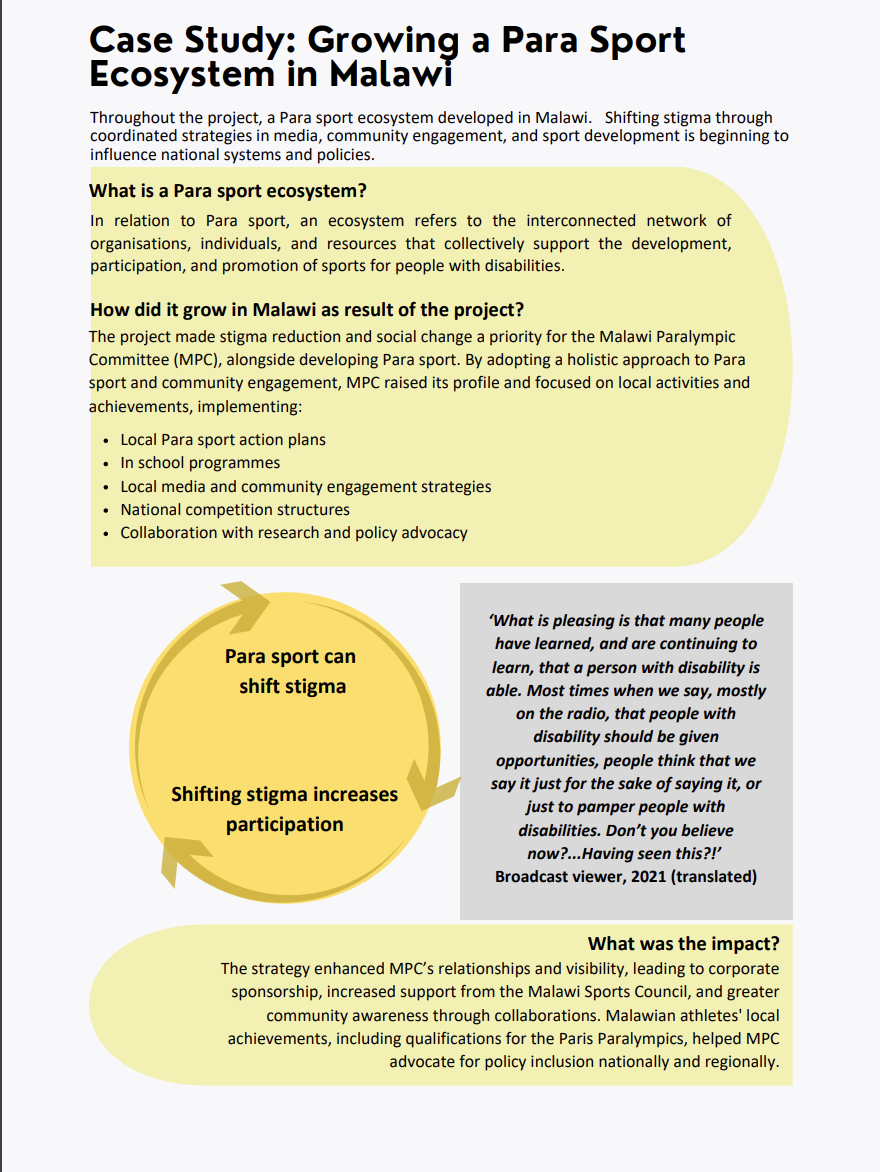
Case study : Growing a Para Sport Ecosystem in Malawi
Throughout the project, a Para sport ecosystem developed in Malawi. Shifting stigma through coordinated strategies in media, community engagement, and sport development is beginning to influence national systems and policies.
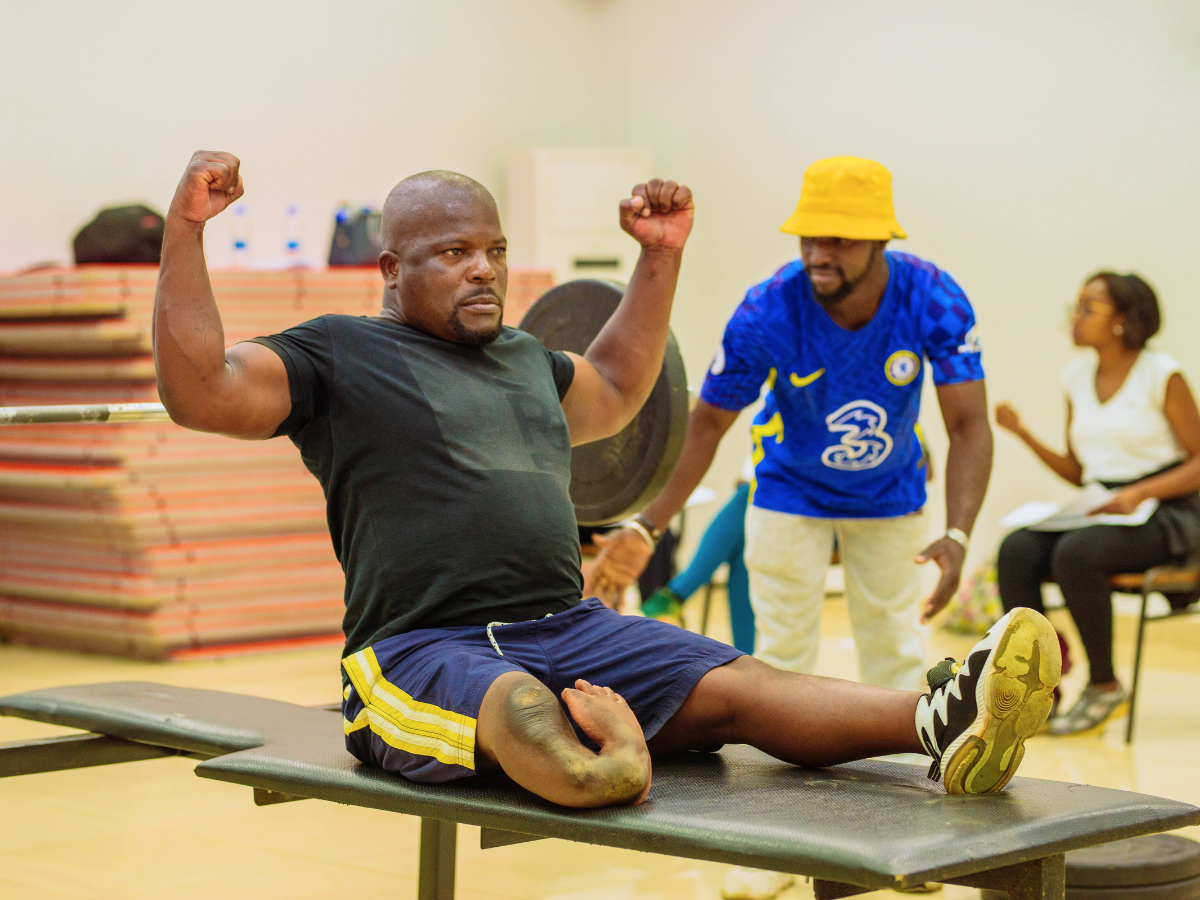
Shifting Stigma - Stories from Malawi’s first-ever Para Games
In Malawi, the landscape of sports is evolving, creating avenues for inclusivity, empowerment, and redefining the narrative for young people with disabilities. Nelia Majawa from the Chilinde Township in Lilongwe, arrives at the Bingu National Stadium to support and encourage around 30 young people with disabilities to play sport and interact with each other at the first Malawian Para Sport Games (27 July 2023). Her daughter is one of them. Her 13-year-old is a weightlifting enthusiast, and her mother beams with pride and joy when stating that she lifted 25 kgs on the day.
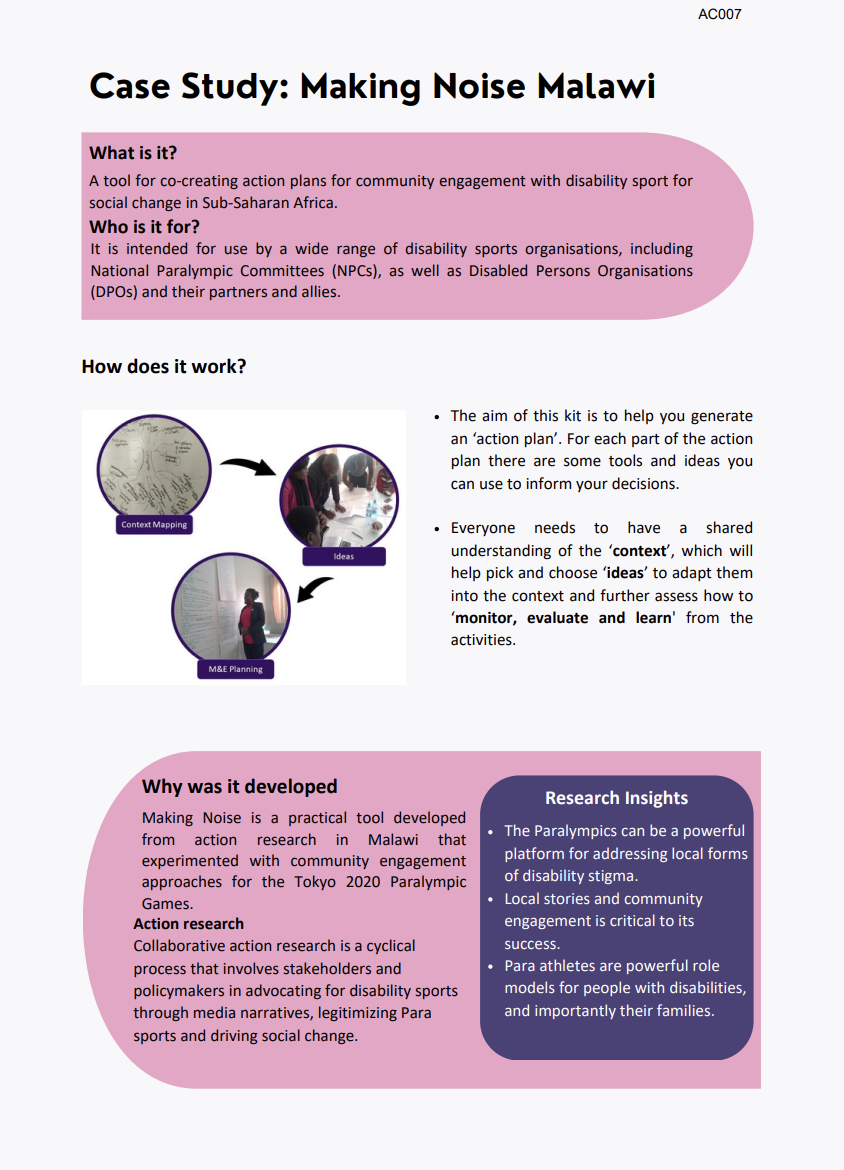
Case Study: Making Noise Malawi
This is a tool for co-creating action plans for community engagement with disability sport social change in Sub-Saharan Africa. It is intended for use by a wide range of disability sports organisations, including National Paralympic Committees (NPCs), as well as Disabled Persons. Organisations (DPOs) and their partners and allies.
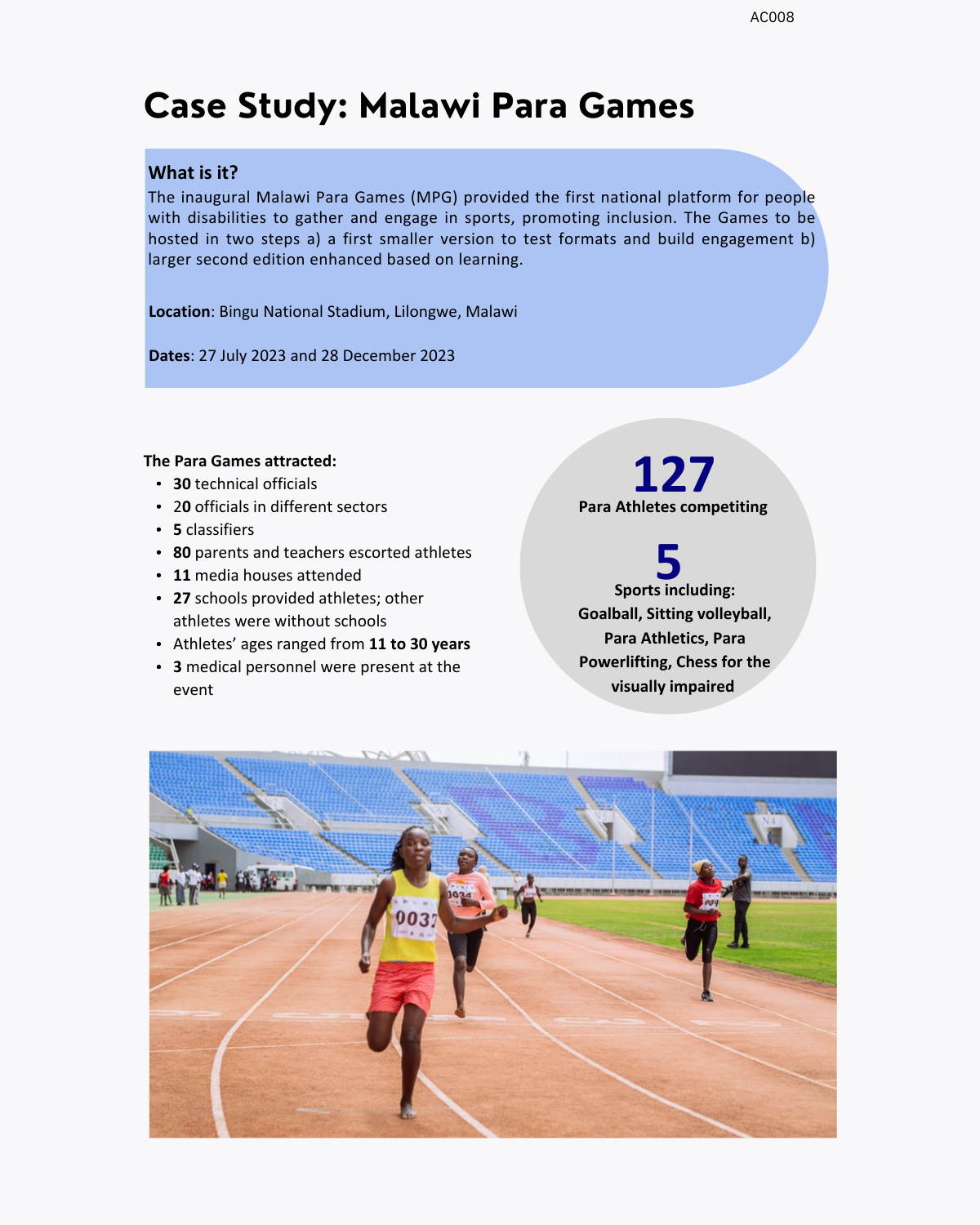
Case Study: Malawi Para Games
The Inaugural Malawi Para Games (MPG) provided the first national platform for people with disability to gather and engage in sports, promoting inclusion.
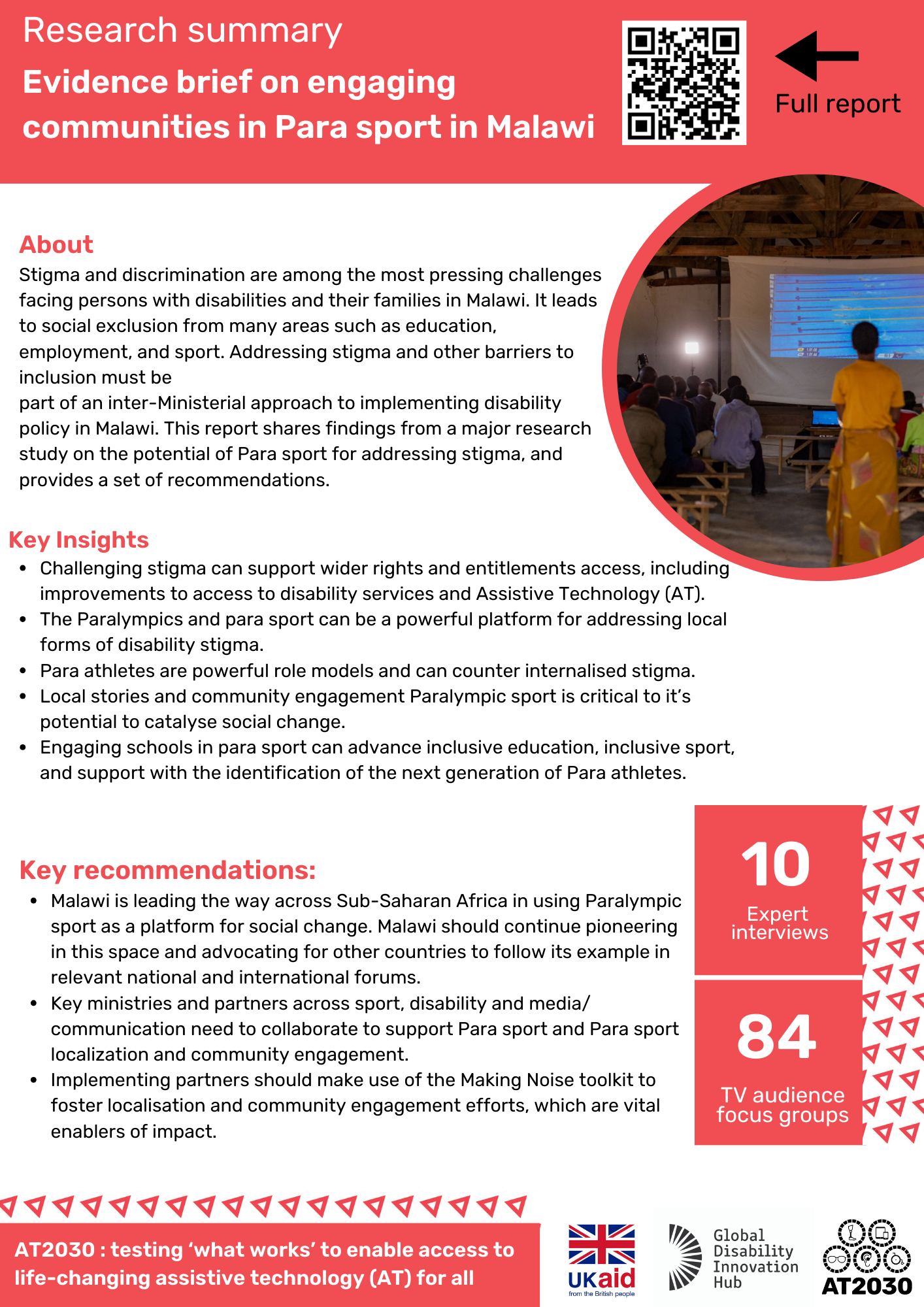
Evidence brief on engaging communities in Para sport in Malawi
This research summary provides key highlights and snapshot content from a major research study on the potential of Para sport for addressing stigma, and provides a set of recommendations.
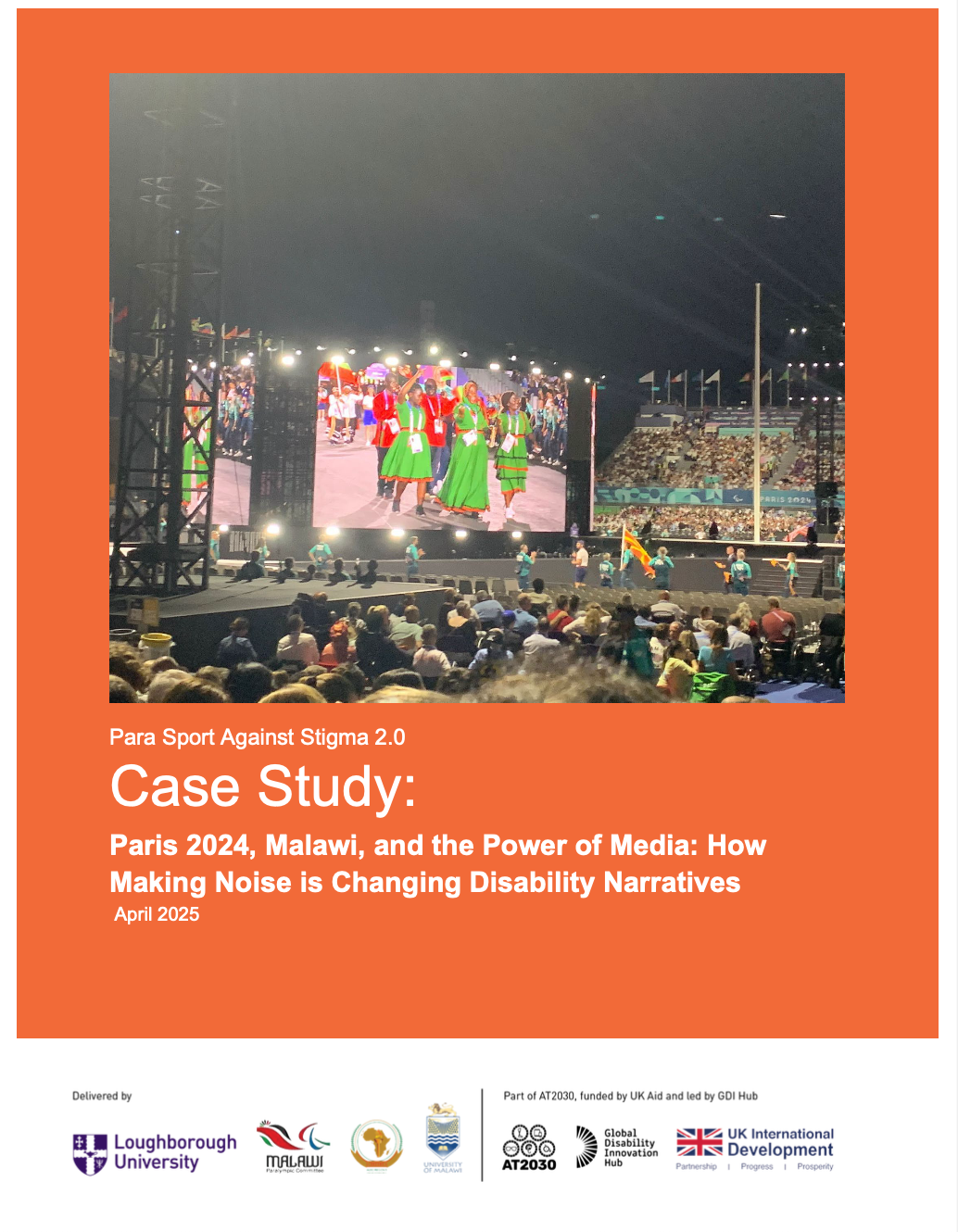
Paris 2024, Malawi, and the Power of Media: How Making Noise is Changing Disability Narratives
The Malawi Paralympic Committee, and University of Malawi, worked closely with a range of national stakeholders to develop activities and media content aimed at challenging and shifting stigma associated with disability through Para sport. This case study provides insight on the "Making Noise" methodology that was implemented before, during, and after the Paris 2024 Paralympic Games.
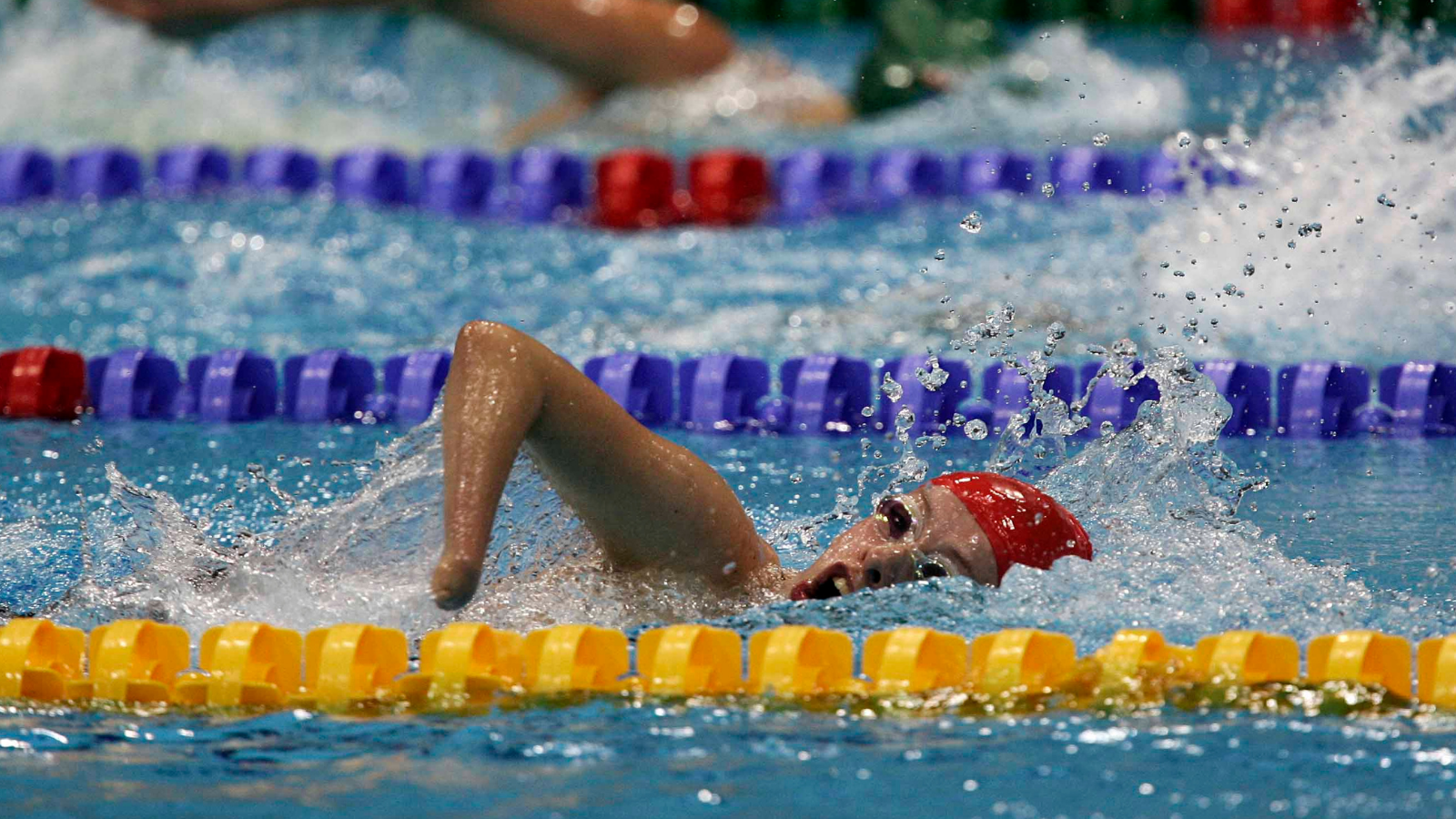
Para Sport Against Stigma: Research Report on the Tokyo 2020 Broadcasting in Sub-Saharan Africa
The AT 2030 Para Sport Against Stigma project aimed to examine how disability stigma can be overcome through Para sport so to increase assistive technology (AT) adoption in Africa. The project centred on a four-pillar approach: education, athlete development, Paralympic broadcast and cross-cutting research activity. This research report documents the research insights.
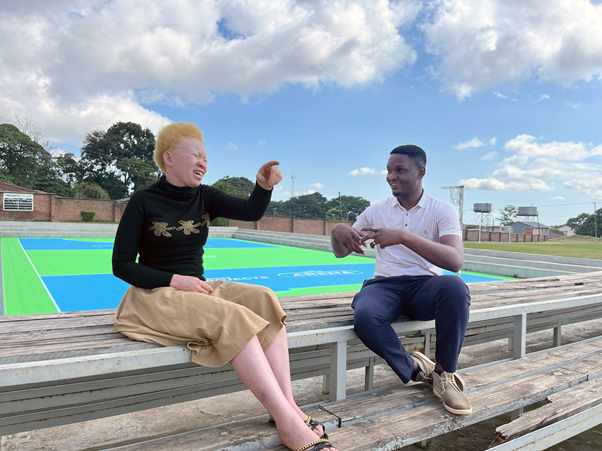
Amplifying Para Athlete Voices Through Radio Drama.
In the lead up to the Paris 2024 Paralympic Games six episodes of the popular Malawian radio drama series, Zimachitika (These Things Happen) were broadcast as a creative way of building interest in Para sport. In Malawi, radio remains a cornerstone of communication, with a listenership rate of 71.2% of the national population . This makes it the most consumed and trusted source of information in the country. With 76 licensed radio stations, ranging from national to community levels, radio has the unparalleled ability to reach diverse audiences. For 28 years, programs like Zimachitika, produced by Story Workshop Educational Trust (SWET), have leveraged this reach to address pressing social issues, including discrimination against people with disabilities. By weaving authentic narratives into its storytelling, the drama not only entertains but also educates and challenges societal biases, a strategy known as ‘edutainment’.
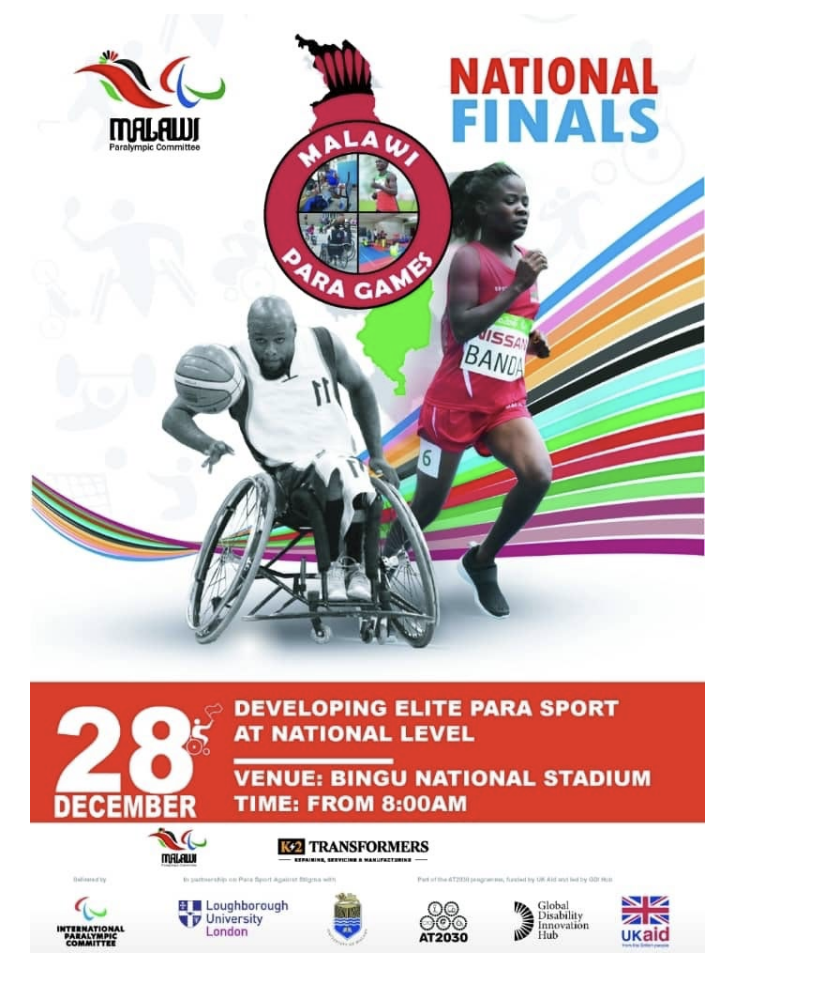
News and Social Media Coverage Malawi and Ghana
Here are some media coverage and pictures for Para Sport Against Stigma in Malawi and Ghana.
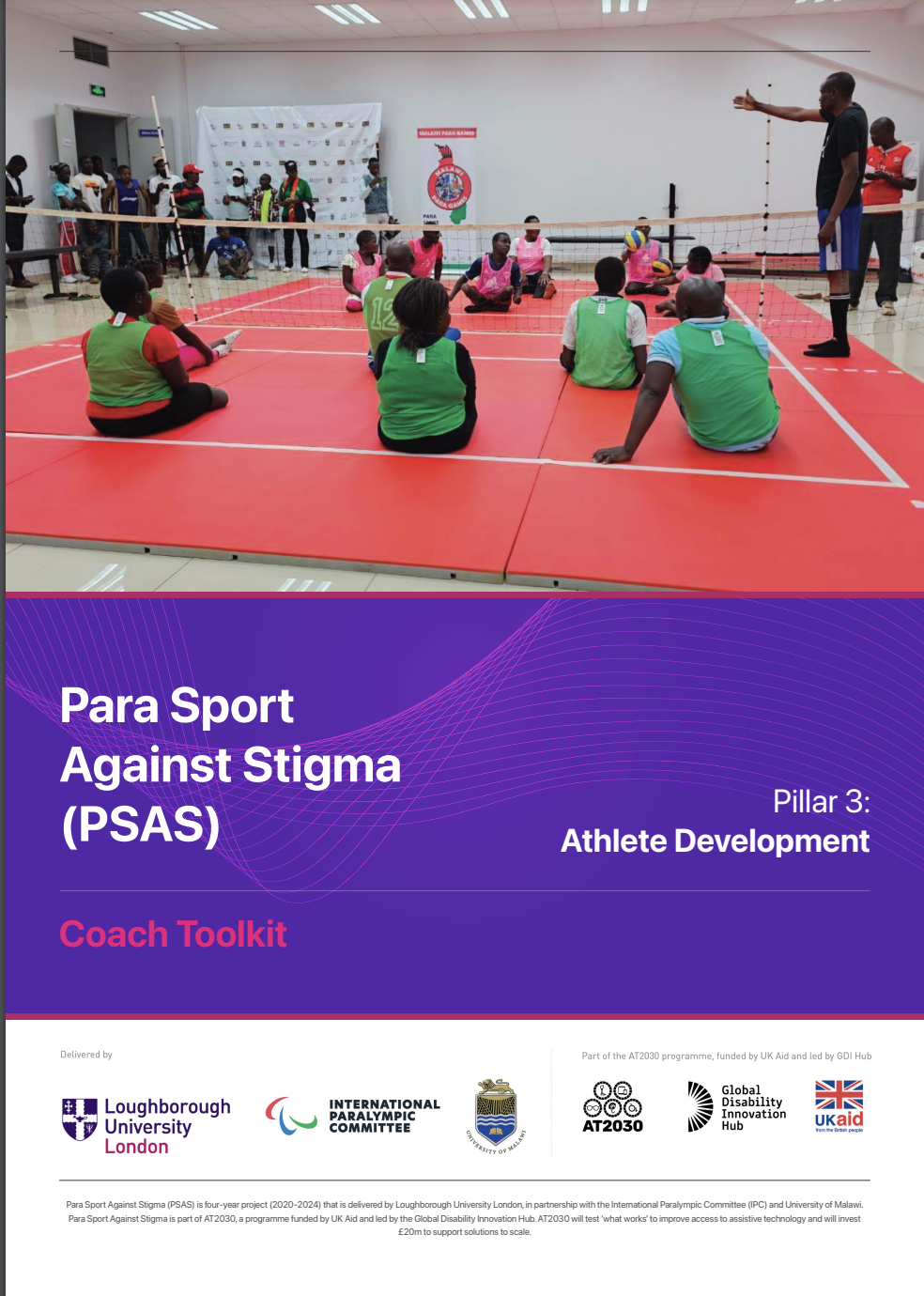
Para Sport against stigma coach toolkit
This toolkit is aimed at supporting coaches who work with disability athletes within their national and international sporting systems. This includes coaches who are starting out within the parasport system, and also those who currently have athletes on national training programmes supported by the National Paralympic Committee (NPC) and competing under their international federation (IF) rules for a particular sport.
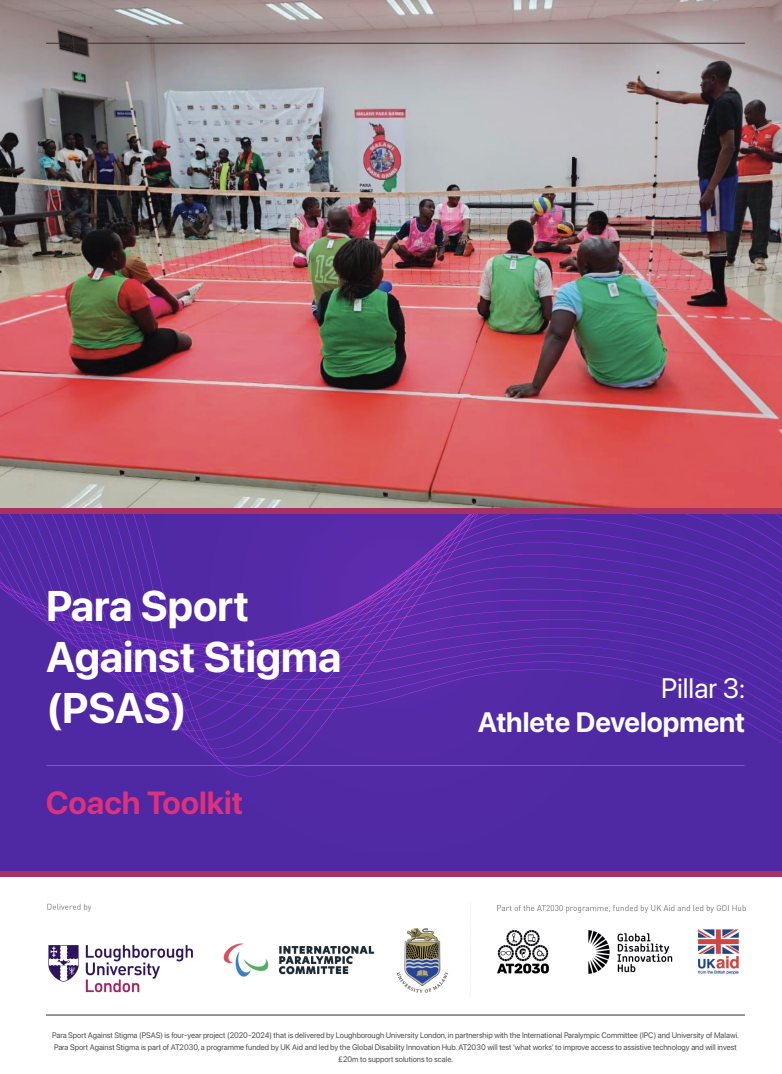
PSAS Coach Toolkit
This toolkit is aimed at supporting coaches who work with disabled athletes within their national and international sporting systems. The toolkit is designed to provide useful information and step-by-step guides on important aspects of Para sport, such as classification systems and processes, competition requirements, coaching checklists and communication methods.
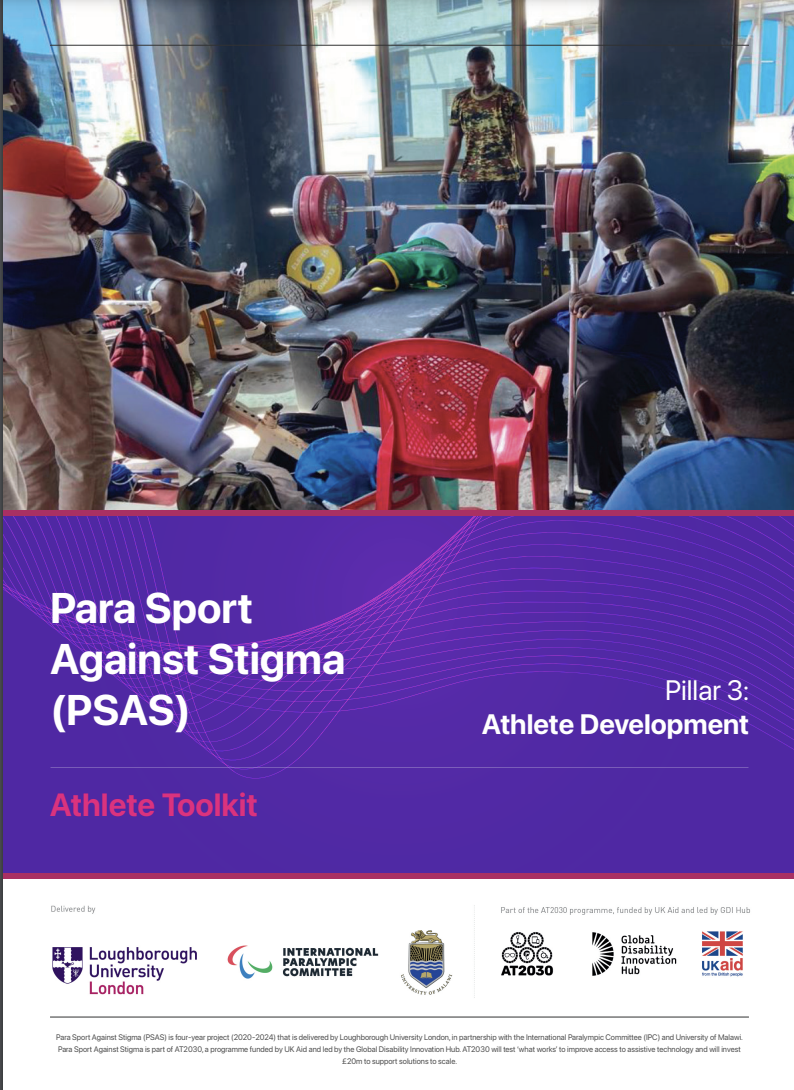
PSAS Athlete Toolkit
This toolkit is aimed at athletes with a disability who aspire to become world class and compete for their country at an international level. The toolkit is designed to provide useful information and step by step guides on important aspects of Para sport such as classification, competition, coaching and communication.
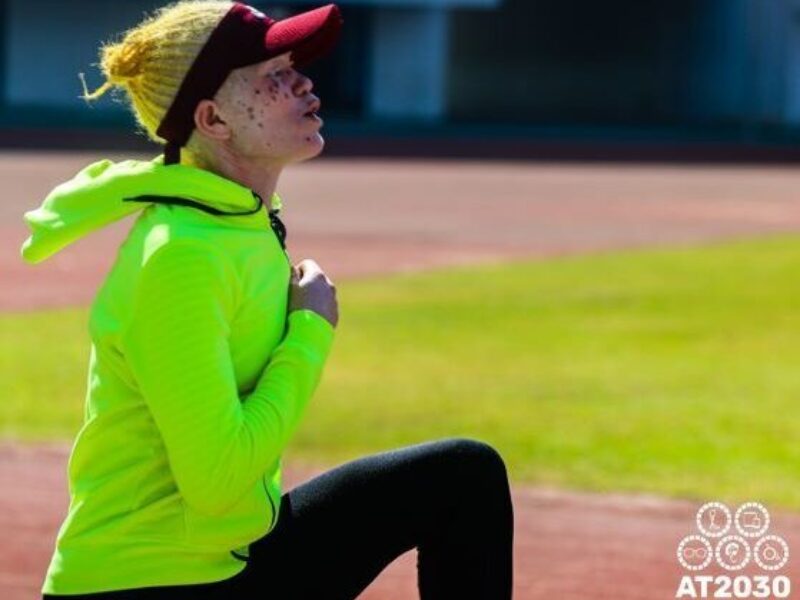
Press release: IPC–led partnership secures a record breaking 49 territories for free-to-air African broadcast coverage of the Tokyo 2020 Paralympic Games
The International Paralympic Committee (IPC) has confirmed that it will provide free-to-air coverage of the Tokyo 2020 Paralympic Games to 49 Sub-Saharan African territories as part of the AT2030 programme’s Para Sport Against Stigma project, which is funded by UK Aid. This is an effort to elevate Para sport and ensure human rights for people with disabilities around the world. Globally, there are 1.2 billion people with disabilities who are often unable to reach their full potential. Central to this is disability stigma, which limits full participation in society from employment and education to sport.
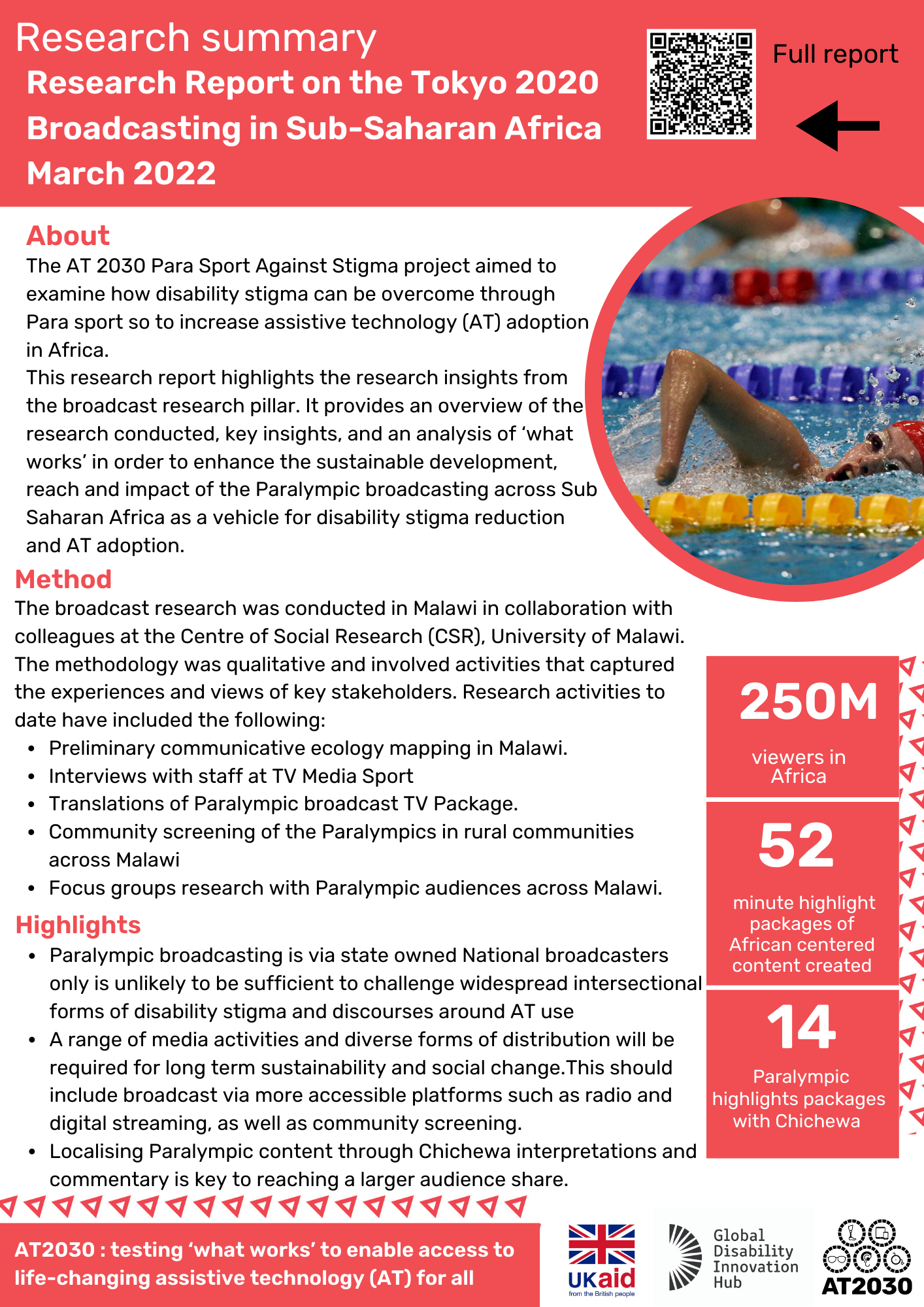
Research Report on the Tokyo 2020 Broadcasting in Sub-Saharan Africa March 2022
This research summary provides key highlights and snapshot content from the journal paper, The AT 2030 Para Sport Against Stigma project aimed to examine how disability stigma can be overcome through Para sport so to increase assistive technology (AT) adoption in Africa.
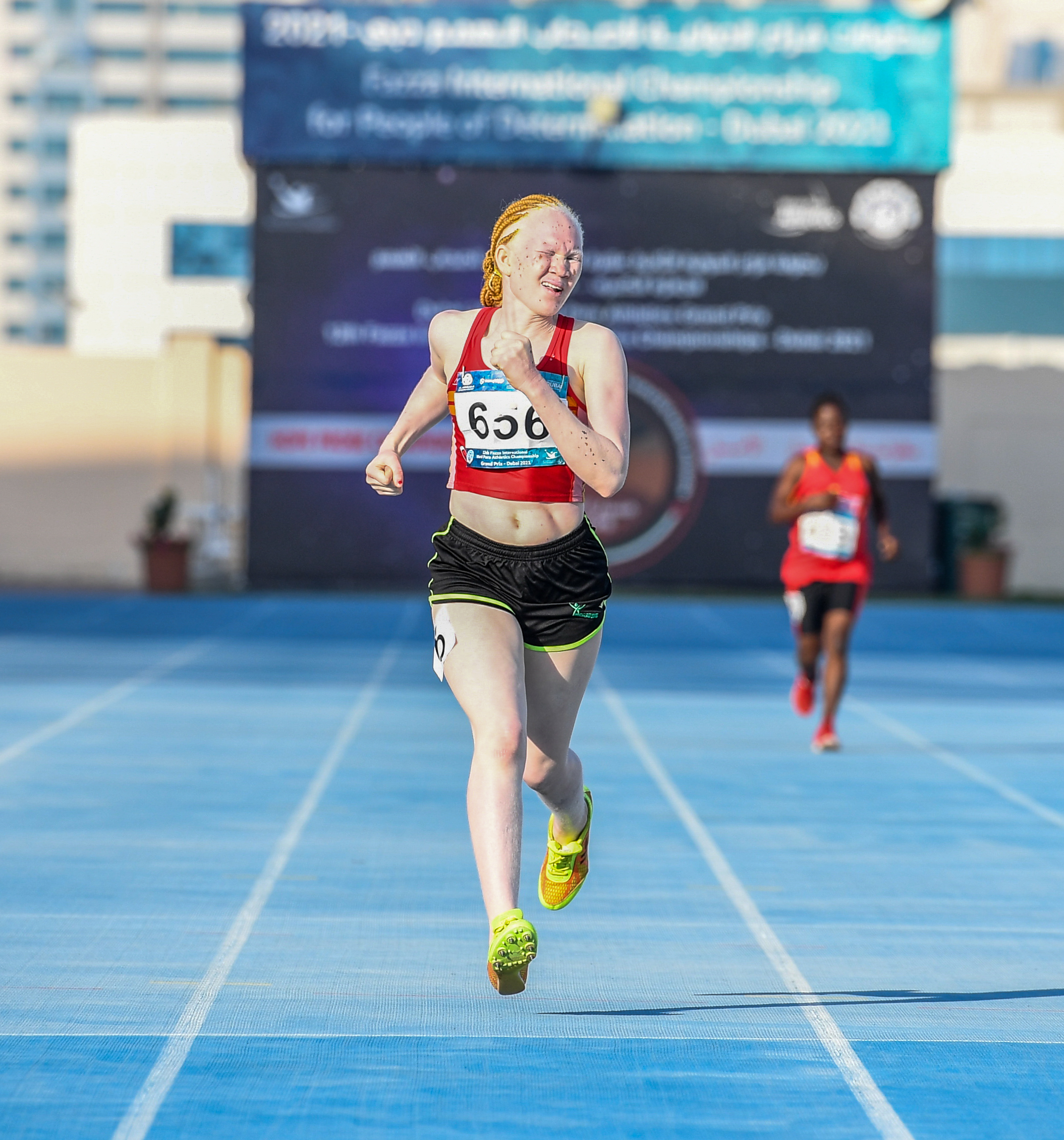
Unlocking the potential of the Paralympics: Para Sport Against Stigma
Community engagement is indispensable to realising the potential impact of the Paralympic Games in different African contexts. The Para Sport Against Stigma project is using action research with partners to try out different approaches in practice to develop a knowledge pool for the kinds of community engagement processes that could ground the Paralympics in diverse contexts across the ‘arc’ of the Games cycle: the lead up, the main event, and the legacy of this year’s Tokyo 2021 Paralympic Games.
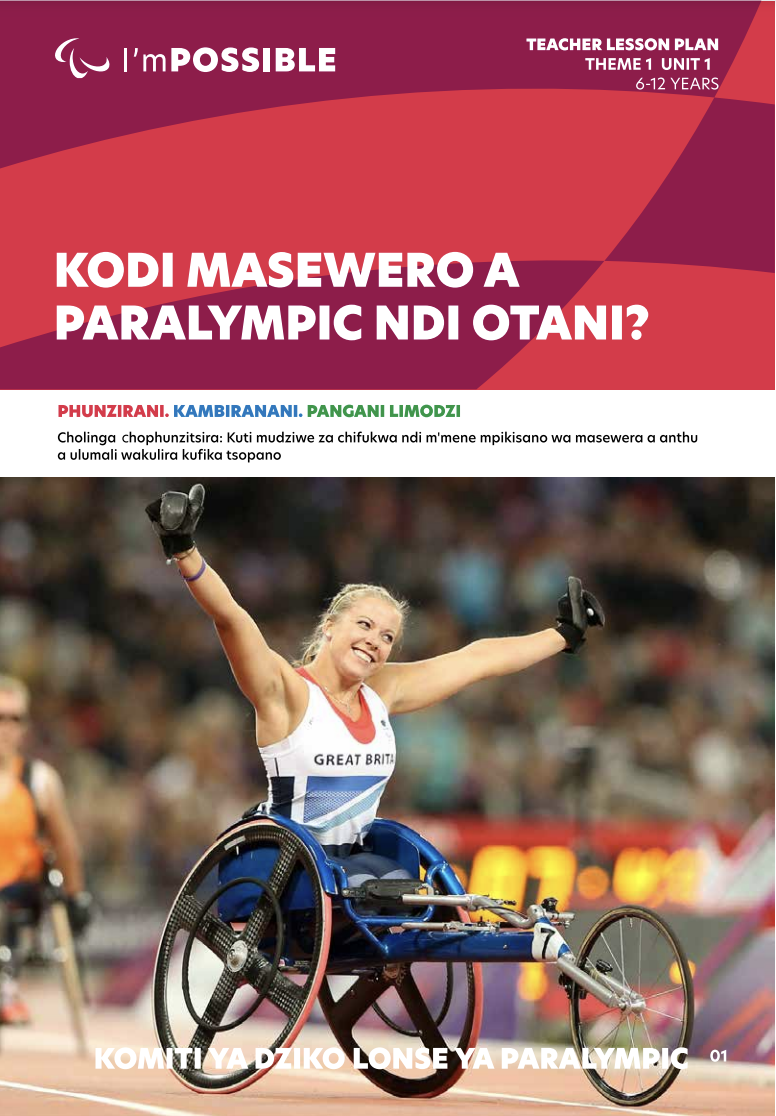
Localising I'mPossible Toolkit Malawi
This toolkit is for professionals in the Para-Sports sector to develop their I'mPossible skillset and address stigma, This tool is available in Chichewa.

Record 49 territories for free-to-air African broadcast coverage of Paralympic Games
The International Committee for Paralympics (IPC) has confirmed that 49 Sub-Saharan African territories will be provided free-to-air coverage of the Tokyo 2020 Paralympic Games as part of the AT2030 programme's ParaSport Against Stigma Project. For the first time, African viewers will watch the opening and closing ceremonies broadcast live on 24 August and 5 September 2021. Daily 52-minute highlights packages of African centred content featuring the continent’s biggest Paralympic heroes and rising stars, will be provided in English, French and Portuguese. It is estimated that the broadcasts will reach over 250 million viewers in Africa.
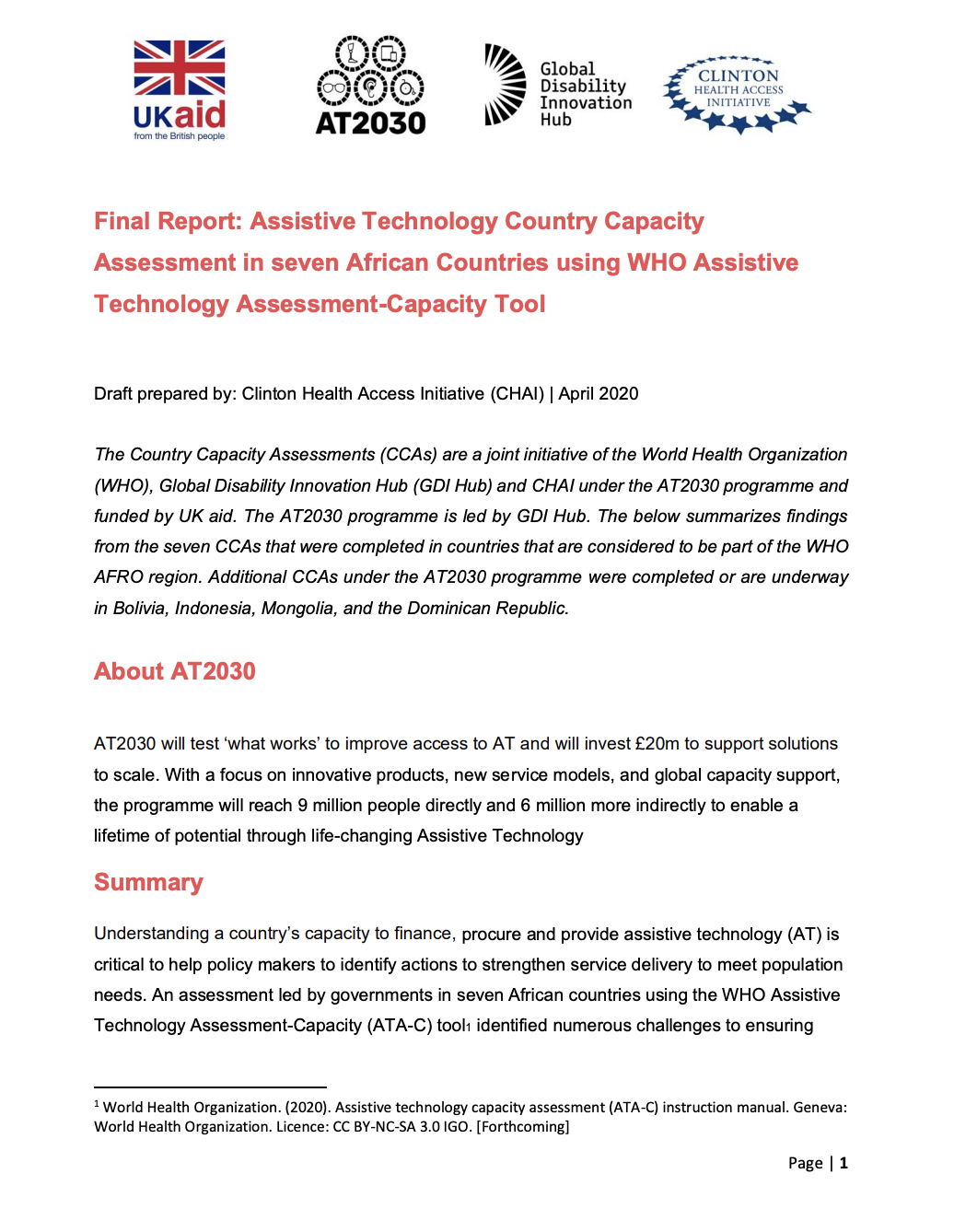
Final Report: Assistive Technology Country Capacity Assessment in seven African Countries using WHO Assistive Technology Assessment-Capacity Tool
Draft prepared by Clinton Health Access Initiative (CHAI)
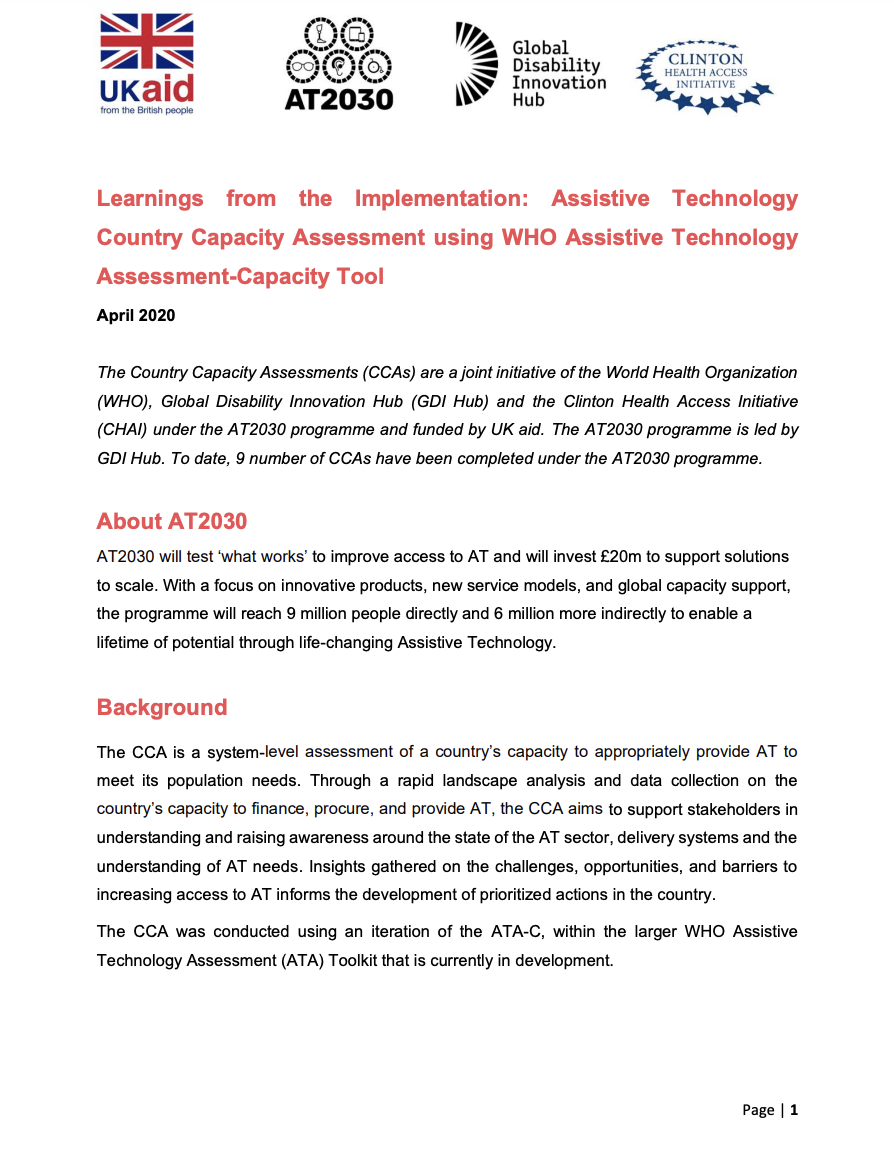
Learnings from the Implementation: Assistive Technology Country Capacity Assessment using WHO Assistive Technology Assessment-Capacity Tool
This draft was prepared by the Clinton Health Access Initiative (CHAI)
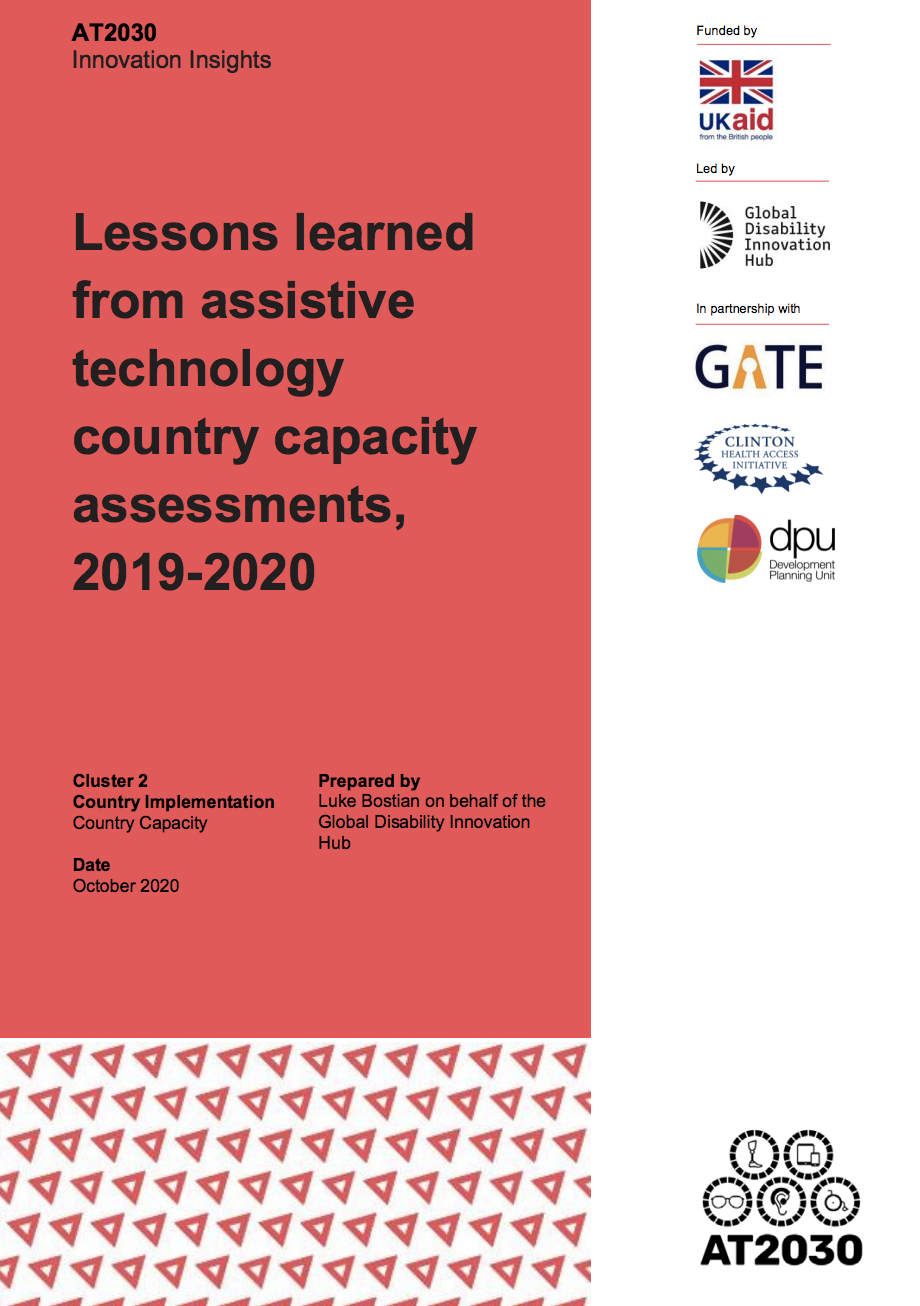
Lessons learned from assistive technology country capacity assessments 2019/2020
The purpose of the CCAs is to “capture a high-level understanding of the often-fragmented AT sector in a country or region,” helping raise awareness about AT gaps and opportunities and contributing to advocacy and policy and program development. One year after the first CCAs began, GDI Hub commissioned research into lessons learned so far and recommendations for how the tool and process might be improved in the future.
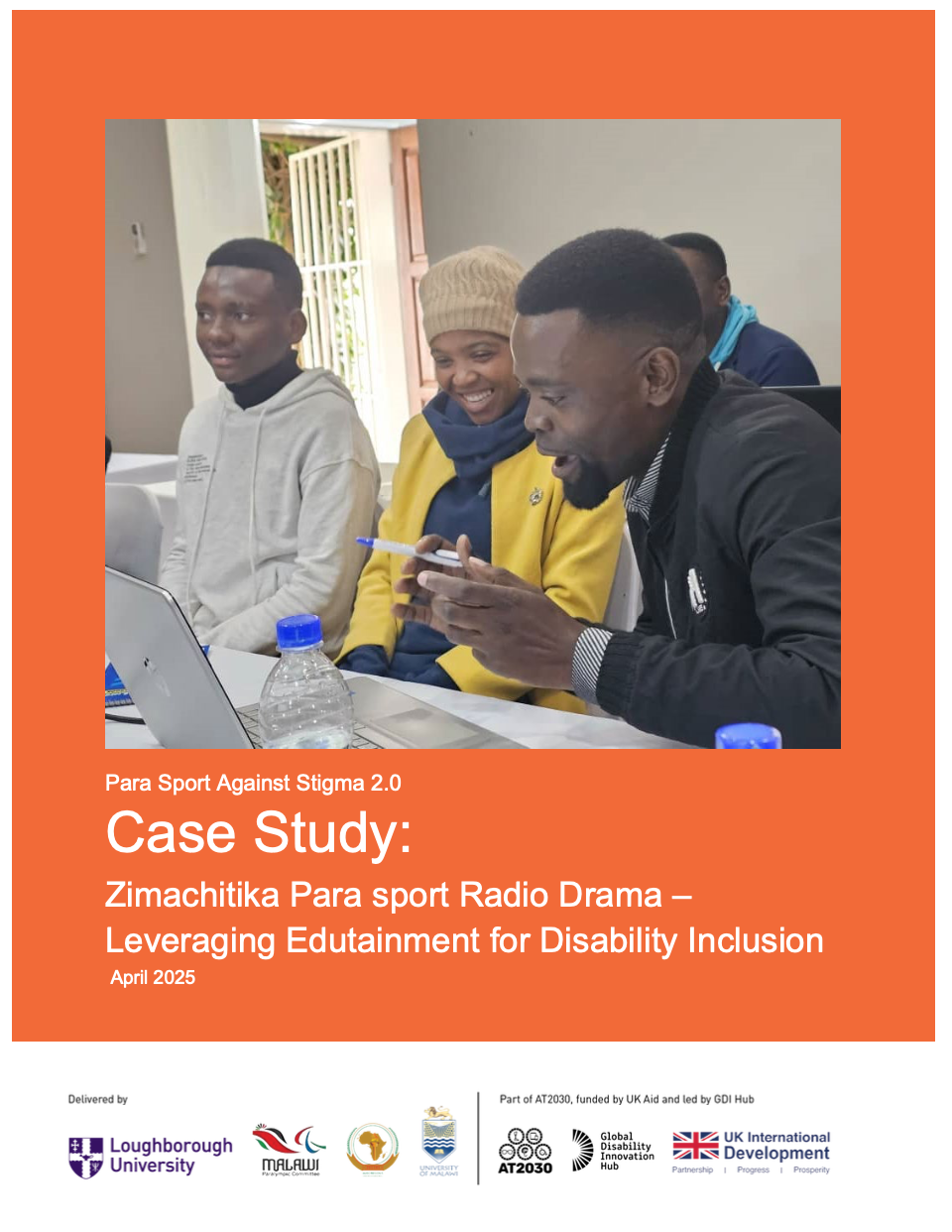
Zimachitika Para sport Radio Drama – Leveraging Edutainment for Disability Inclusion
Ahead of the Paris 2024 Paralympic Games, the Malawi Paralympic Committee and the University of Malawi partnered with Story Workshop Educational Trust (SWET) to produce six special episodes of the popular Malawian radio drama Zimachitika (These Things Happen). Using the "Making Noise" methodology, this initiative aimed to build interest in Para sport and challenge stigma around disability through the power of storytelling.